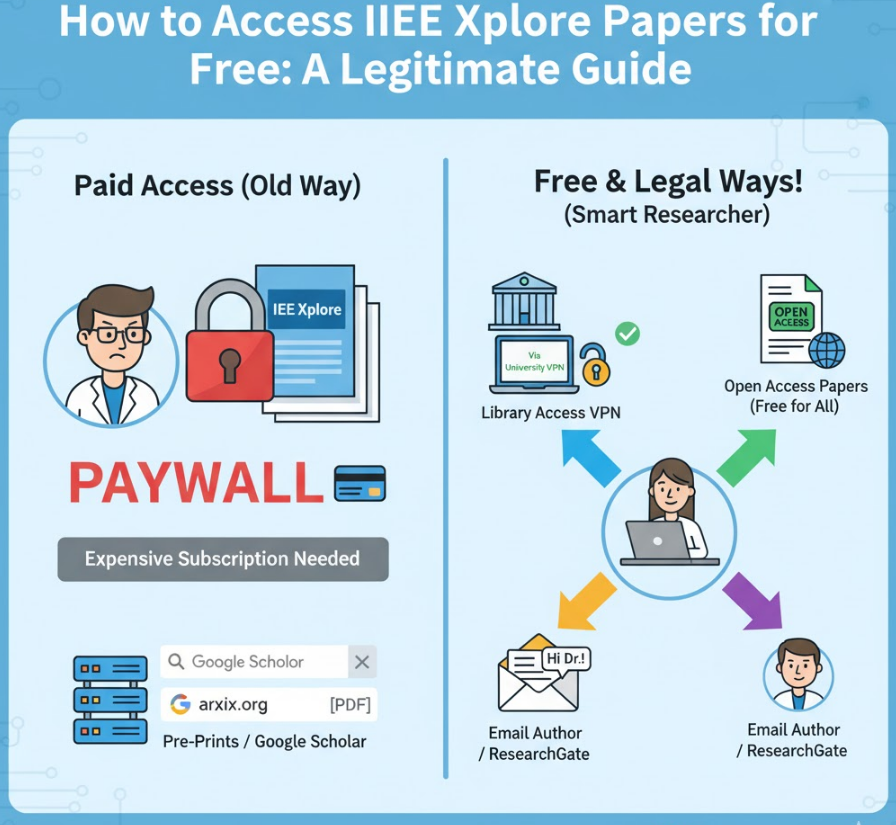

1155 views||Release time: Nov 05, 2025
You’ve found the perfect IEEE paper for your research, a critical piece of the puzzle... and it’s locked behind a paywall. For students, independent researchers, and engineers without a large corporate budget, this is a frustratingly common experience.

The IEEE Xplore Digital Library is one of the world's most valuable resources for technical literature, but it operates on a subscription model.
The good news? A paywall isn't always a dead end. Before you give up or resort to questionable methods, there are numerous legal and ethical ways to access the research you need. This guide will walk you through the most effective strategies.
1. Check Your Institutional Access (The "Official" Way)
This is the most simple and important first step. You may already have access without realizing it.
2. Search for Open Access (OA) Versions
The academic world is increasingly moving toward Open Access. This means many articles are legally free to read for everyone.
3. Find the Pre-Print or Author's Manuscript (The "arXiv" Method)
This is the most powerful method, especially in fields like Computer Science, AI, and Electrical Engineering.
4. Just Ask the Author Directly
This is the most overlooked and surprisingly effective method. Researchers want their work to be read.
Subject: Request for PDF of your paper: "[Paper Title]"
Dear Dr. [Author's Last Name],
I am a [Student/Researcher] at [Your Institution] and I'm very interested in your research, particularly your paper "[Paper Title]" published in [Conference/Journal Name].
Unfortunately, I do not have access to the IEEE subscription. Would you be willing to share a PDF copy with me for my personal research?
Thank you for your time and consideration.
Sincerely, [Your Name]
5. Check Academic Social Networks
Many authors upload their papers to their profiles on academic networking sites.
A Note on Unofficial Sources
You will likely encounter websites (like Sci-Hub) that claim to offer free access to any paywalled paper. It is important to know that these services operate by bypassing publisher paywalls and distribute copyrighted material illegally.
Using these services constitutes copyright infringement in most countries and is not a legitimate or ethical method for academic research. We strongly recommend sticking to the legal methods outlined above to support the academic community and avoid legal risks.
Conclusion
A paywall is not a dead end. By leveraging your institutional access, searching for Open Access versions, checking pre-print servers like arXiv, and contacting the author directly, you can legally and ethically access the vast majority of IEEE papers you need for your research.